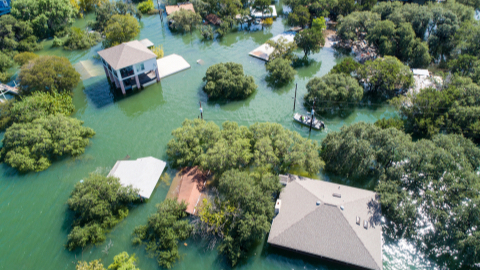
The European Defense Agency (EDA) and the European Space Agency (ESA) are partnering on two new projects that will explore unknown or potentially hazardous environments: using drones to monitor disaster-stricken regions or toxic spill sites; and, making use of Artificial Intelligence (AI) to navigate across the surface of asteroids.
In the past, ESA-EDA have successfully demonstrated the use of space-based assets to respond to threats from toxic and hazardous materials. The project showed that space systems helped generate fast and accurate response to such threats in terms of situational awareness, early warning, detection, and response planning.
This next-stage demonstration project – called Autonomous Drone Services (AUDROS) – will integrate space assets in sectors such as telecommunications, navigation and Earth observation. Using autonomous and/or remotely piloted aerial vehicles for the detection of toxic materials and carrying out rapid response to large-scale disasters is expected to lead to the development of operational services that will deliver support to defense and security users on a permanent basis.
Another joint project – called ATENA – will develop AI-based systems with the capability of flying safely over unknown territory to achieve enhanced navigation performance compared to current vision-based techniques based on feature tracking. The use of AI-based capabilities in the field of guidance, navigation and control (GNC) is being developed for future space missions such as rendezvousing with asteroids and comets or the removal of hazardous space debris from orbit.
“The role of space-based services for security and defense actors is a recognized priority for Europe. The importance of space assets and applications for defense capabilities is reflected in the revised Capability Development Plan (CDP) approved by Member States at the EDA Steering Board in June 2018.” says EDA Chief Executive, Jorge Domecq. ESA is a natural and trusted partner for us. Over the years we have built a cooperation that has yielded numerous successful projects, through eight Implementing Agreements totaling over €5 million in shared investments, covering several priority areas.”
